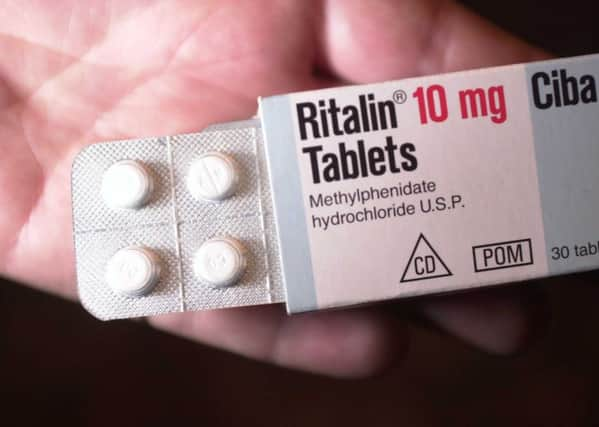MSP criticised over prescriptions


Last week, Mr Lamont brought attention to recently released figures showing that while most health boards have seen a slight increase in ADHD prescriptions, NHS Borders saw the largest increase in dispensing of ADHD drugs between 2009/10 and 2014/15.
Prescriptions per 1,000 have doubled in that time, and last year, NHS Borders prescribed more than 180,000 daily doses of ADHD medication, including drugs such as Ritalin, to under 19s.
Advertisement
Hide AdAdvertisement
Hide AdThis works out at 20.71 doses per 1,000 of the population, compared to the Scotland wide average of 8 per 1,000.
However, NHS Borders have said in a statement that the board is “disappointed that Mr Lamont did not raise his concerns with us around the published ADHD figures.
The statement went on: “His comments display little understanding of the condition or its treatment and what the figures represent. In fact previous national reviews of ADHD treatment across Scotland identify Borders Health Board as providing one of the best services for children and young people with ADHD.
“ADHD is a long tem condition and early diagnosis and appropriate intervention is crucial.
Advertisement
Hide AdAdvertisement
Hide Ad“World wide prevalence rates for ADHD are around 5% of school age children and the Implementation Review of SIGN Guidelines demonstrated that diagnostic rates and therefore treatment rates in Scotland fall far short of this.
“A review in 2012 resulted in recommendations being made to each Board about improving their services and diagnosis rates. NHS Borders compared very favourably nationally at that time. The high referral, diagnosis and treatment rates are a result of good practice being employed to ensure an accessible and effective service.”
Dr Ashley Cameron, consultant child and adolescent psychiatrist, said: “ADHD is one of the most commonly diagnosed neuro-developmental disorders in children and young people.
“Without treatment, these children are more likely to suffer from low self esteem; they tend to perform poorly at school and may not be able to develop healthy relationships with their family and friends. Being held back by all these problems at such a young age gives them disadvantages in life often leading to antisocial behaviour and even a greater risk of later substance misuse.”
Advertisement
Hide AdAdvertisement
Hide Ad“The drug therapy is very effective and has a large evidence base to support its use. However, the children and young people referred to us receive a range of treatments and support for them and their families as well as any drug treatments.”
Dr Cameron went on: “We all work very hard with our patients and their families to ensure they get the best treatment possible. Drug therapies are not seen as a solution in themselves, but as an important tool in helping these children to deal with their condition and give them the best start in life.
“Any child on medication is kept under regular review and medical will only continue if positive results are shown. These reviews involve the child’s parents and representatives from both education and health.”